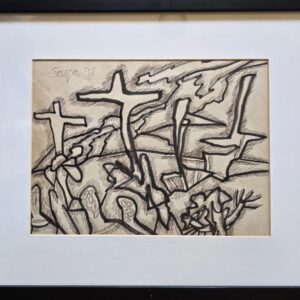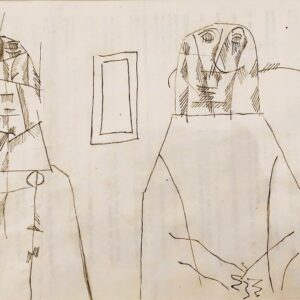Francis Newton Souza
Francis Newton Souza (1924–2002) was a pioneering Indian modernist whose bold, provocative style redefined postcolonial Indian art. Born in Saligao, Goa, into a strict Roman Catholic family, Souza’s early life was marked by rebellion—expelled from both school and the Sir J.J. School of Art in Bombay for his defiant acts. In 1947, he co-founded the Progressive Artists’ Group, aiming to break away from colonial academic traditions and usher in a new era of Indian art.
Souza’s work is characterized by its raw expressionism, featuring distorted figures, vibrant colors, and themes that delve into religion, sexuality, and human frailty. His 1955 autobiographical essay, “Nirvana of a Maggot,” published in Encounter magazine, garnered attention and led to a successful solo exhibition at London’s Gallery One. Throughout his career, Souza’s art challenged societal norms, making him a central figure in modern Indian art. His works are housed in major collections worldwide, including the Tate Modern and the National Gallery of Modern Art, India.

